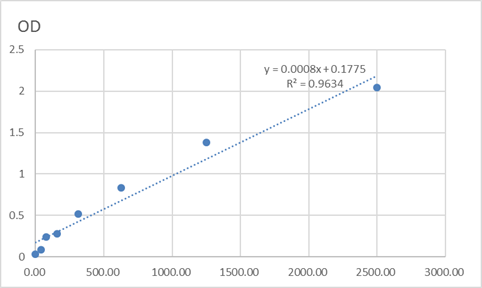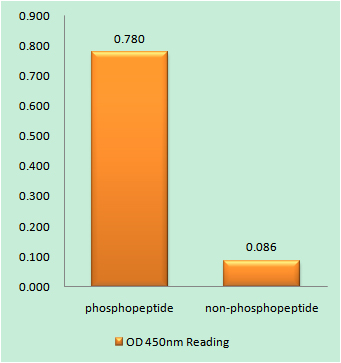Total Cyclin E2 Cell-Based Colorimetric ELISA Kit
- 货号:KA4064C
- 应用:ELISA
- 种属:Human;Mouse
- 基因名称:
- CCNE2
- Human Gene Id:
- 9134
- Human Swiss Prot No:
- O96020
- Mouse Swiss Prot No:
- Q9Z238
- 储存:
- 2-8°C/6 months
- 其他名称:
- G1/S-specific cyclin-E2
- 检测方法:
- Colorimetric
- 背景:
- function:Essential for the control of the cell cycle at the late G1 and early S phase.,induction:Activated by papilloma viral oncoproteins E6 and E7 which bind to and inactivate p53 and Rb, respectively.,PTM:Phosphorylation by CDK2 triggers its release from CDK2 and degradation via the ubiquitin proteasome pathway.,similarity:Belongs to the cyclin family.,similarity:Belongs to the cyclin family. Cyclin E subfamily.,subunit:Interacts with the CDK2 (in vivo) and CDK3 (in vitro) protein kinases to form a serine/threonine kinase holoenzyme complex. The cyclin subunit imparts substrate specificity to the complex.,tissue specificity:According to PubMed:9858585: highest levels in adult testis, thymus and brain. Lower levels in placenta, spleen and colon. Consistently elevated levels in tumor-derived cells compared to non-transformed proliferating cells. According to PubMed:9840927: low levels in thymus, prostate, brain, skeletal muscle, and kidney. Elevated levels in lung. According to PubMed:9840943: highly expressed in testis, placenta, thymus and brain. In a lesser extent in small intestine and colon.,
- 功能:
- cell cycle checkpoint, regulation of cyclin-dependent protein kinase activity, DNA metabolic process, DNA replication,DNA-dependent DNA replication, DNA replication initiation, cell cycle, regulation of phosphate metabolic process,regulation of phosphorylation, regulation of kinase activity, regulation of protein kinase activity, regulation of phosphorus metabolic process, cell division, regulation of transferase activity, regulation of cell cycle,
- 细胞定位:
- Nucleus .
- 组织表达:
- According to PubMed:9858585, highest levels of expression in adult testis, thymus and brain. Lower levels in placenta, spleen and colon. Consistently elevated levels in tumor-derived cells compared to non-transformed proliferating cells. According to PubMed:9840927: low levels in thymus, prostate, brain, skeletal muscle, and kidney. Elevated levels in lung. According to PubMed:9840943 highly expressed in testis, placenta, thymus and brain. In a lesser extent in small intestine and colon.
- June 19-2018
- WESTERN IMMUNOBLOTTING PROTOCOL
- June 19-2018
- IMMUNOHISTOCHEMISTRY-PARAFFIN PROTOCOL
- June 19-2018
- IMMUNOFLUORESCENCE PROTOCOL
- September 08-2020
- FLOW-CYTOMEYRT-PROTOCOL
- May 20-2022
- Cell-Based ELISA│解您多样本WB检测之困扰
- July 13-2018
- CELL-BASED-ELISA-PROTOCOL-FOR-ACETYL-PROTEIN
- July 13-2018
- CELL-BASED-ELISA-PROTOCOL-FOR-PHOSPHO-PROTEIN
- July 13-2018
- Antibody-FAQs



